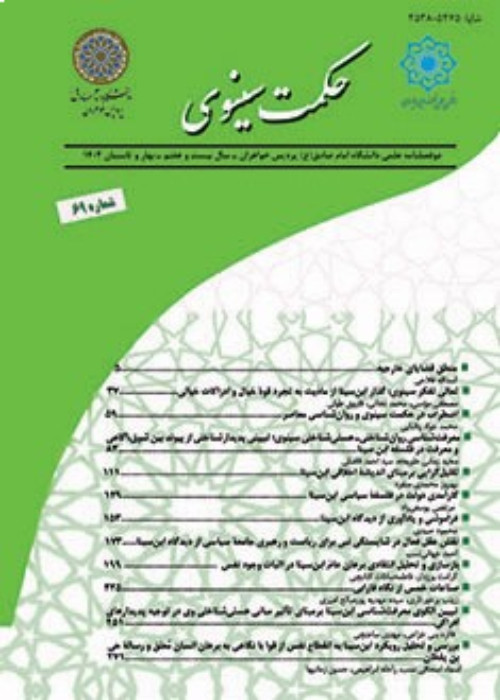Avicenna’s Psychological-Ontological Epistemology: A Phenomenological Explanation of the Relation between Passion, Awareness and Knowledge in Avicenna’s Philosophy
The impact of non-epistemological factors on the process of knowledge formation is a fundamental question that has captivated the attention of epistemologists. These factors, encompassing psychological, sociological, and other influences, play a significant role in shaping the knowledge formation process. Can we discuss the influence of non-epistemological factors on knowledge in Avicenna’s psychology? According to Avicenna, knowledge is primarily under the sway of psychological factors. He advocates for a psychological-ontological epistemology by introducing the factor of passion in the knowledge formation process and endeavors to elucidate its connection with consciousness. Avicenna consistently engages in ontological analyses of psychological factors affecting knowledge. This paper employs a phenomenological approach to analyze Avicenna’s perspective on effective non-cognitive factors, yielding the following
(1) non-epistemological factors play a crucial role in directing consciousness and the knowledge formation process; (2) movement only occurred when passion arises or when we confront with the sensation of excitement, as every movement follows a passion. Passion possesses an independent ontological nature and cannot be defined solely under the perceiving or motivating powers. Passion imbues coherence to consciousness, determining and reinforcing the perceiving power to make judgments related to the good and the bad. Avicenna's epistemology is not devoid of natural aspects, but this research, putting the natural factors in parenthesis, considers the psychological factors solely from an ontological standpoint. A phenomenological interpretation is derived from Avicenna’s expressions, emphasizing the quality of knowledge emergence and its connection with psychological factors. By establishing the superiority of the motivating power over the perceiving power, a model of ontological-psychological epistemology in Avicenna's philosophy is deduced.
- حق عضویت دریافتی صرف حمایت از نشریات عضو و نگهداری، تکمیل و توسعه مگیران میشود.
- پرداخت حق اشتراک و دانلود مقالات اجازه بازنشر آن در سایر رسانههای چاپی و دیجیتال را به کاربر نمیدهد.


